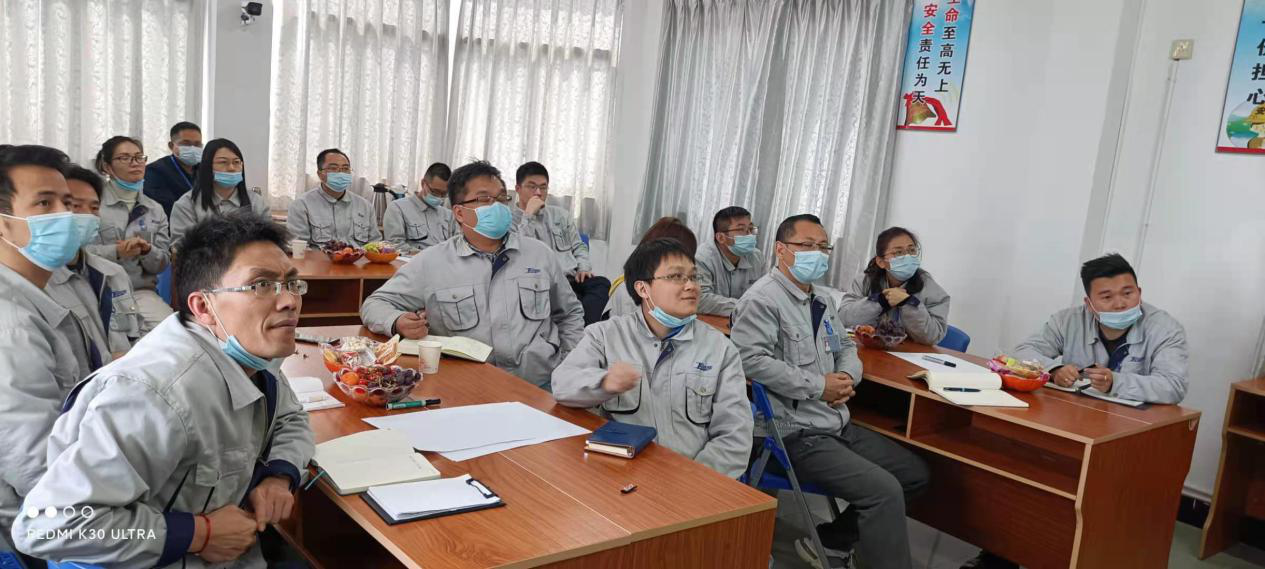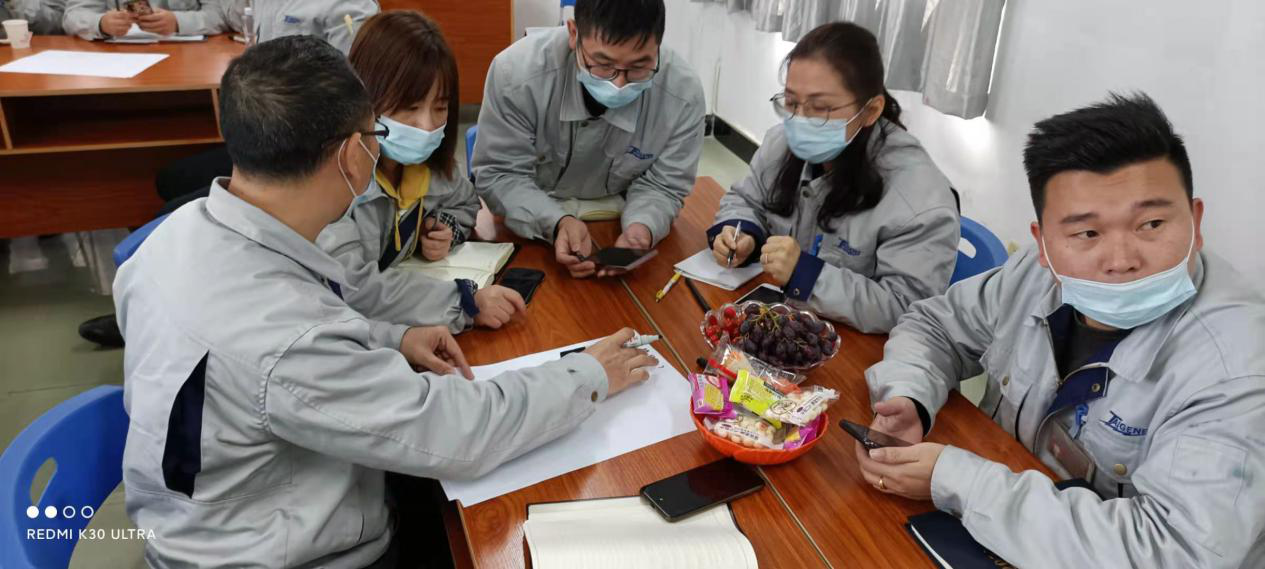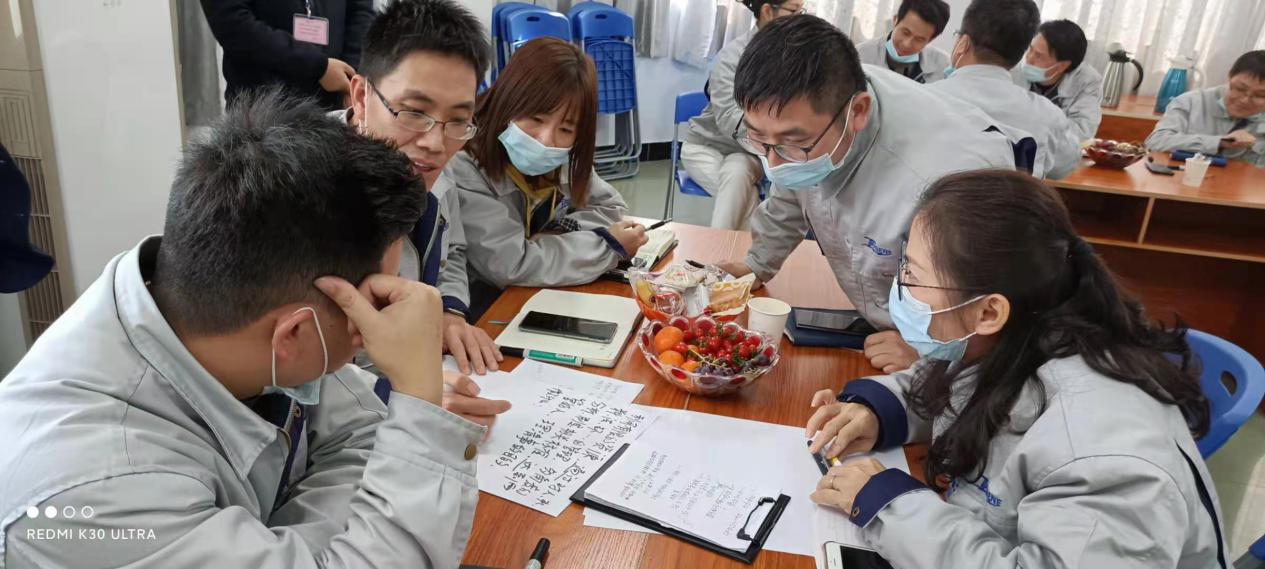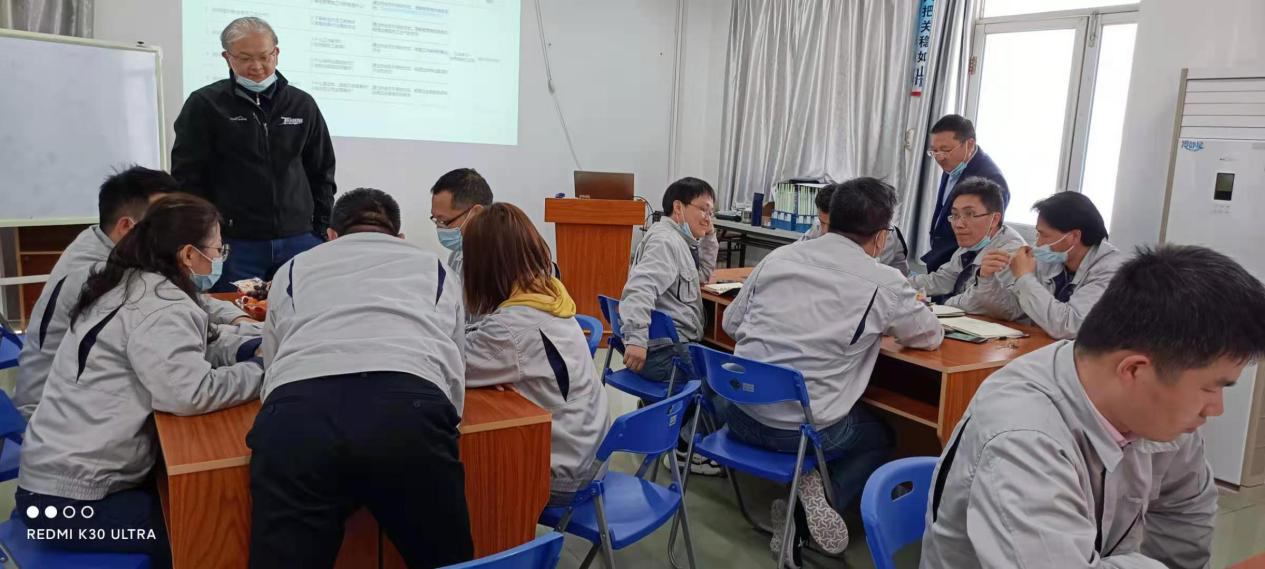On March 24, the middle management cadres of the Fuzhou Taigene Industry Organization conducted an innovative learning salon activity, introducing a new type of "world coffee" meeting mode, which is a team learning method widely used internationally in recent years. It is a way of collectively asking questions and sharing ideas. By creating a space that makes people feel comfortable like a cafe, through group discussions and interactive rotations, people with different backgrounds, different concepts, and even unknown people can sit together, making diverse and rich Views and opinions get the greatest agitation, allowing collective wisdom to emerge spontaneously. Create a learning atmosphere of sincere and free talk, so that the content and essentials of the training can be grasped more firmly.


The seminar was conducted by Qiao Teacher, a senior human resources consultant, and the topic of sharing was: What are the roles and responsibilities of managers. After sharing the theme, Qiao teacher acted as a facilitator, guiding everyone to communicate on the theme of the role of manager.


This event is divided into three links. The first link is for each group to select a supervisor as the team leader. The team leader organizes members to discuss, question and reflect on the theme, and the team leader summarizes everyone’s views; the second link is for the team members to exchange positions for the second time Cross-discussion; The third part is that the members of each group return to the original group, discuss and organize the collected information, and form a report on the results of the table, and the on-site teacher will objectively evaluate the performance and speech of each group.

At the end of the event, Deputy manager Li of Fuzhou Taigene Industry made a concluding speech on the event. He pointed out that this "World Coffee" seminar was the first time that Fuzhou Taigene carried out. The supervisors had a wealth of thoughts during the training. He hope to be able to inspire future management work, and in the next series of thematic trainings, the goal of the unity of knowledge and action will be truly achieved, and the leadership and management ability will be upgraded to "how to do" and "do it now". At the level of knowledge transformation, it will bring about effective and continuous changes in the way of thinking and behavior of trainees.


 NEWS
NEWS